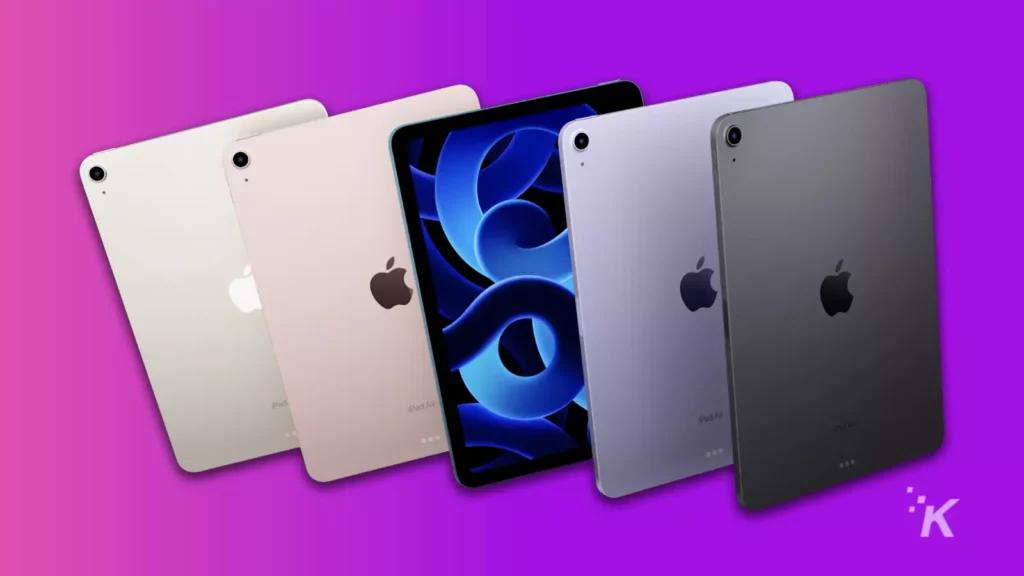Two decades is an incredible run for any tech product. The iPod’s longevity is no less impressive when you consider that, by 2010, the notion of carrying a dedicated music player was almost considered parody. Today, it’s as unthinkable as riding to work on a Penny-Farthing.
But all good things come to an end. Last week, Apple led the iPod’s dying frame behind the proverbial cowshed. A journey that began in 2001 with a promise of 1,000 songs in your pocket ended abruptly with a press release.
The iPod of 2022 (or, more accurately, 2019, when the last model was released) was starkly different from its predecessors. In form and function, it was a fully-fledged computing device. An iPhone without the phone.
The last pure media player iPod (the seventh-generation iPod Nano) was released in 2012 and discontinued five years later.
Few expected the iPod to last as long as it did. By 2015, Apple had ceased reporting iPod revenue as a separate line item on its balance sheet.
It last appeared in 2014’s Q4 quarterly earnings report, where it accounted for less than one percent of the company’s revenue, down 29 percent on the previous year. Unit sales dropped 24 percent, reaching a nadir of 2.4m.
This begs the question: why did Apple keep the iPod around for a further six years?
It feels uncharacteristic. When a product loses its value proposition, Apple retires it without hesitation. The MacBook Air supplanted the original polycarbonate MacBook. The Mac Mini Server elbowed out the XServe, only to later find itself under Tim Cook’s ax.
We’ll never know why Apple kept the iPod around for as long as it did. Apple is a black box. It operates under a thick shroud of omerta. But we can speculate.

A few years ago — back when I worked for TNW — I had a theory. The iPod Touch was useful for Apple, even if its revenues were a mere rounding error on its balance sheet because it was a gateway drug to the iOS ecosystem.
This idea isn’t necessarily new. The Guardian, ZDNet, and ArsTechnica had similar thoughts during the iPod Touch’s early years. With the benefit of foresight, it’s interesting to see how well those predictions held
Put yourself in the shoes of a parent
You want a portable computer to keep your child entertained on long journeys, access schoolwork, or play games, but you don’t want to get them a phone. You might not think they’re ready. Additionally, you may have legitimate safeguarding concerns.
The iPod Touch was a perfect compromise. It was an iPhone with additional guardrails. The absence of mobile connectivity helped parents to police their offspring’s activity, but the core functionality — access to games, apps, and the wider internet — remained intact.
First impressions count. For potentially millions of children, the iPod Touch represented their first mobile device. Get them early and keep them forever.
Apple has some of the highest levels of brand loyalty in the consumer electronics space. According to analyst house Consumer Intelligence Research Partners, 90 percent of iPhone users remain with Apple when they upgrade.
iPhones are a high-margin product. And that’s without mentioning Apple’s generous — some (cough, Epic, cough) might say crushing — cut of App Store revenue.
Does Apple want the iPad to replace the iPod Touch as a gateway drug to the ecosystem?
So, what changed? Again, we’re still firmly in speculation territory here, but I’d posit the iPad’s runaway pandemic success has something to do with it.
In the first year of lockdown, Apple’s worldwide iPad shipments hit a high water mark of 53.2 million. They became a highly sought-after commodity. Particularly for parents and schools transitioning to remote learning.
The iPad is the latest gateway drug for the iOS ecosystem. Like the iPod Touch, it’s affordable, with a starting price of $329.
It benefits from the expansive iOS ecosystem, as well as an operating system that’s designed for big-screen, touch-screen interactions. It has mouse and keyboard support, allowing it to be used as a traditional laptop computer.
In short, it’s the best of every world.
The iPod Touch may be gone, but it wasn’t a victim of Apple’s neglect or the wider shift towards convergence that befell its media-centric siblings. The iPad just rendered it irrelevant.
Have any thoughts on this? Let us know down below in the comments or carry the discussion over to our Twitter or Facebook.




